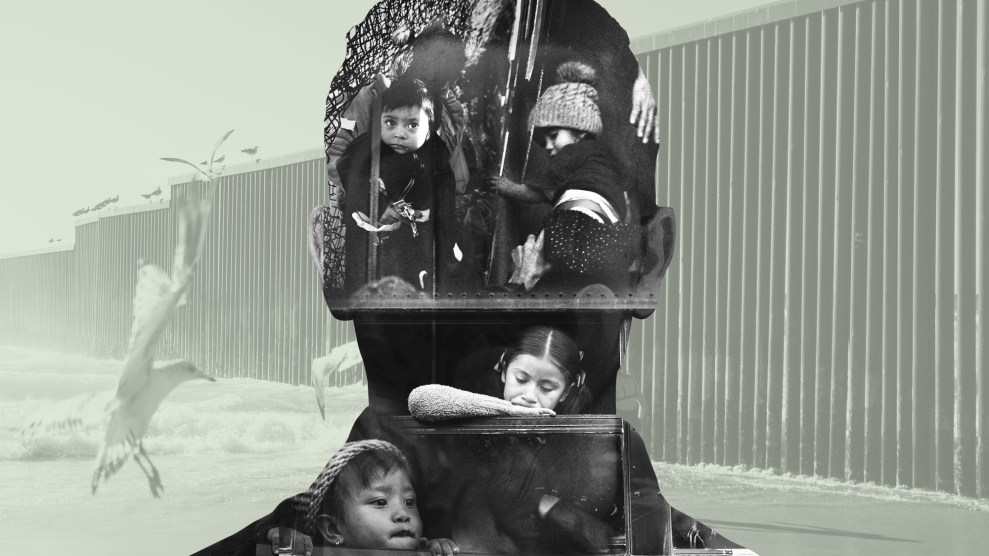
Mother Jones illustration; Roberto Bonet Negrete/Zuma; Getty
The Trump administration essentially has slammed the door shut on asylum seekers in the last year, forcing more than 60,000 migrants to wait upwards of a year in Mexican border cities as their cases moved through US immigration court. But on this latest episode of The Mother Jones Podcast, we take you to New Mexico to meet some of the select few asylum seekers who have defied odds to be admitted to the United States—and who now must face a new set of challenges as they settle into life here.
Mother Jones‘ Fernanda Echavarri and Julia Lurie spend the day with a so-called family navigator from a local direct-services organization called Las Cumbres whose main job is to do “whatever the families need”: from driving them around to a clinic to helping them enroll in school. Las Cumbres is a nonprofit that helps families with resources—including mental health services—in a city without the type of support systems that immigrants can find in bigger cities such as Los Angeles, New York City, or Chicago.
Many newly arrived immigrants are often preoccupied with trying to find employment and a safe place to live first, before addressing any mental health issues. They’ve fled dangerous situations and traumatic experiences in their home countries before experiencing the infamously harsh conditions inside US immigration detention facilities. Mental health experts have said it can be difficult to recognize signs of trauma in these communities, not only because trauma shows up differently when they’re still in the middle of processing it, but also because they are still in the middle of it with so much stress to handle.
Subscribe to the Mother Jones Podcast, here.

















